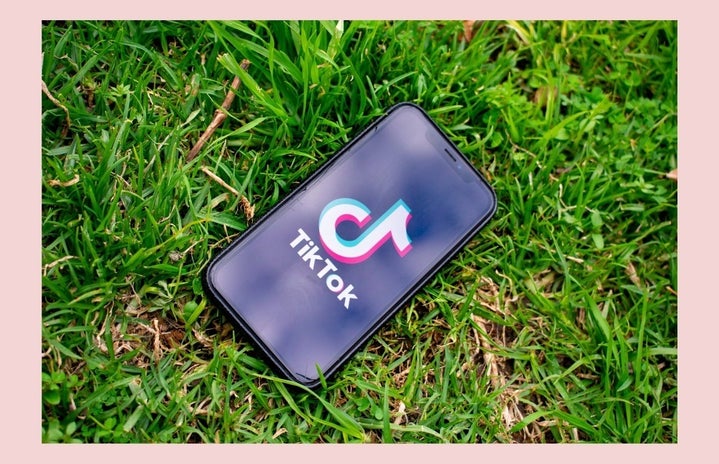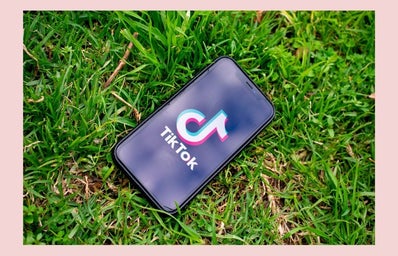Raise your hand if you’ve ever been personally victimized for having a TikTok.
Yeah, me too.
I’ve found that opinions surrounding the app are rarely lukewarm, and are split into two distinct viewpoints. This first group views TikTok as an endless feedback loop of mindless and shallow content. This viewpoint is usually adopted by those who consider themselves as “too mature” for TikTok. The second group are in undoubted favour of the app, viewing it as a community of young creators who produce engaging, fresh content. This stance generally stems from the active creators and avid users of TikTok, and not many else. It’s probably safe to say that I, along with most of you, are part of this latter group.
John Hermann of the New York Times neatly summarized these viewpoints, saying, “[TikTok] can be charming. It can be very, very funny. It is frequently, in the language widely applied outside the platform, from people on other platforms, extremely ‘cringe.'”
Let’s take a closer look at that. What’s with this shallow conception of TikTok? It seems that no matter what content appears on the app, the platform – along with all of its users – are automatically classified as ‘cringe’ by the onlooking masses. This doesn’t seem like a big issue at first, but think about it – Gen X’s have Facebook and Millennials have Instagram. TikTok is growing to be the defining social media platform of our generation, Generation Z, and it’s perceived by many in this distinctly one-dimensional way.
“I agree that cringe-culture is apparent on TikTok, like the weird POVs and the obscure side, but I also feel like that exists on every site…Twitter has Stan accounts, and Tumblr had lots of fandoms back in the day. I feel as though people are focused on the negative side rather than the aspects of TikTok that help people learn and create,” says Patricia Chin, a junior at the University of Colorado Boulder. How come TikTok, out of all of these social media platforms, is treated with such a stark lack of legitimacy? Shouldn’t the content that TikTok creators produce be viewed with a more unbiased, decidedly not cringey lens? And, let’s not forget that every generation has had it’s fair share of cringey moments. Millennials, are we forgetting the rage comic era?
Now, I know that this one-dimensional perception isn’t derived from thin air or pure spite. I’ll freely admit that, just like any other social platform, there is indeed quite a fair share of…questionable content on TikTok (I’m mostly talking about the Willy Wonka thirst traps – if you know, you know), but that’s defintely not all the platform has to offer. In my personal experience, the app showcases a pretty amazing mosaic of individuals. These creators make content about every niche, aesthetic and community imaginable. Whether the app is ‘cringey’ or not, it’s a unique space where “users can feel comfortable simply being themselves, creating what they want to create, not only what they think others want to see,” according to Kieran Mathew, CEO of Amplify. “I think the algorithm of TikTok is so beneficial,” points out Patricia Chin. “It is constantly putting new creators in front of a new audience. It also never gets boring because of this new constant flow.”
Basically, TikTok’s content, creators, and algorithm are boldly pushing the boundaries of what social media can be, and that’s something worth noticing.

Take creators like Victoria Misu, who’s built her following from creating otherworldly environments through her amazingly creative use of mirrors, greenery, and outfits that look straight out of a dream.
Or, Tommy Guta, who takes trending audios and turns them into little music video masterpieces.
Then there’s Madeleine Turner, who manages to create Netflix Original worthy concepts in a whole cinematic experience within TikTok’s tiny 60-second limit.
While not all TikToks showcase this level of production value, it’s clear that the TikTok community is truly diverse, creative, and far more three-dimensional than what often meets the public eye.
But, it must be noted that this freedom to create is a double edged-sword. Like any form of social media, TikTok does have the capacity to house content from creators that promote white nationalism, sexism, and other forms of hate speech. However, seeing that the majority of TikTok users belong to Generation Z (frequently described as the most progressive-leaning age group) this content is swiftly condemned by users in the comment sections.
Aside from simply shutting down offensive content, TikTok also has been used by many teens as a platform for actual change. In a widely-covered stunt, TikTok users have been credited for the embarrasingly low attendance rates at Trump’s recent campaign rally due to a viral TikTok that prompted viewers who had no intention to attend the event to reserve seats at the rally. Trump’s campaign managers were properly blindsided by the lack of actual attendees given the high amount of ‘online interest’, with political strategist Steve Schmidt describing the trend to NPR as a “act of civil disobedience, of subversion by young people who understand the consequences and are appalled and disgusted by the comportment and behavior of this president.”
In summary, TikTok is a fresh slate where Gen-Z’s like us can create innovative content that pushes the boundaries, and that doesn’t necessarily have to rely on existing media norms to be successful. For example, in other places like YouTube where content has slowly devolved to clickbait and The Tonight Show clips, and only 28 of the top 100 YouTube channels are actual YouTubers as opposed to corporations, TikTok offers a free-for-all playground where we can be the trendsetters instead of the followers.
It’s a pretty special platform that is making big impacts, and its users (AKA, us) shouldn’t be discounted. We’re more than this one-dimensional picture that’s been established. We have a lot to say, and a lot to create, so make and watch TikToks all you want.
Don’t be shy.


